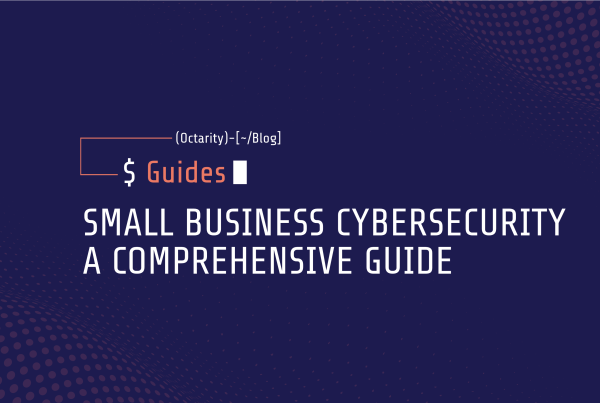In today’s interconnected world, small businesses are increasingly becoming prime targets for cybercriminals. With limited resources and often a lack of dedicated cybersecurity personnel, small businesses find themselves vulnerable to a myriad of cyber threats. Among the various risks they face, there is one that stands out as the Achilles’ heel: human error. In this blog post, we will delve into the realm of small business cybersecurity and explore why human error poses the greatest threat.
The Human Factor: A Vulnerability to Exploit
While technological advancements have transformed the way we do business, they have also introduced new avenues for cybercriminals to exploit. However, the weakest link in the cybersecurity chain is often not the technology itself but the people who interact with it. Small businesses typically lack the training, awareness, and robust cybersecurity policies needed to tackle the ever-evolving threat landscape effectively.
Phishing Attacks: The Gateway to Breaches
One of the most prevalent forms of cyberattacks targeting small businesses is phishing. Cybercriminals craft convincing emails, messages, or phone calls that trick unsuspecting employees into divulging sensitive information or downloading malicious attachments. With a single click, an entire organization’s digital fortress can be compromised. This highlights the need for comprehensive employee training and awareness programs to educate staff about the warning signs and best practices for identifying and reporting phishing attempts.
Weak Passwords: Unlocking the Door for Intruders
Passwords are often the first line of defense against unauthorized access. Unfortunately, many small businesses still fall prey to weak or easily guessable passwords. Employees may reuse passwords across multiple accounts, leave them written down, or fail to update them regularly. Additionally, default passwords for software and hardware are frequently left unchanged, leaving businesses susceptible to attacks. Implementing strong password policies, encouraging the use of password managers, and enabling multi-factor authentication can significantly enhance the security posture of small businesses.
Insider Threats: The Wolf in Sheep’s Clothing
While external threats dominate the cybersecurity discourse, it’s important not to overlook the risks that originate from within. Insiders, whether disgruntled employees, contractors, or partners, can pose a significant threat to a small business’s cybersecurity. Whether it’s unauthorized data access, data theft, or sabotage, small businesses must implement strict access controls, regularly review user permissions, and foster a culture of trust and vigilance to mitigate the risk of insider threats.
Lack of Regular Patching and Updates: A Breeding Ground for Vulnerabilities
Small businesses often struggle to keep their systems and software up to date, leaving them vulnerable to known security vulnerabilities. Cybercriminals are quick to exploit these weaknesses, capitalizing on the lack of patch management practices. Automating software updates, employing vulnerability scanning tools, and establishing a centralized patch management system can significantly reduce the risk of falling victim to easily preventable attacks.
Inadequate Backup and Disaster Recovery Measures: The Road to Devastation
Ransomware attacks have witnessed a surge in recent years, with small businesses being prime targets. These attacks can encrypt critical business data and demand a hefty ransom for its release. Small businesses that lack robust backup and disaster recovery plans are left with two undesirable choices: paying the ransom or facing the potential loss of vital data. Investing in reliable backup solutions, regular data backups, and testing the restoration process can ensure business continuity and minimize the impact of such attacks.
Conclusion
While small businesses face numerous cybersecurity risks, human error is undeniably the most significant vulnerability they must address. By prioritizing employee education, implementing strong password policies, mitigating insider threats, maintaining updated systems, and establishing comprehensive backup and recovery measures, small businesses can bolster their defenses and safeguard against the ever-present cyber threats. Remember, investing in cybersecurity is not a luxury but a necessity in today’s digital landscape, where the cost of a breach can be catastrophic. Get in touch with Octarity today to start mitigating these risks and safeguard your companies data!


